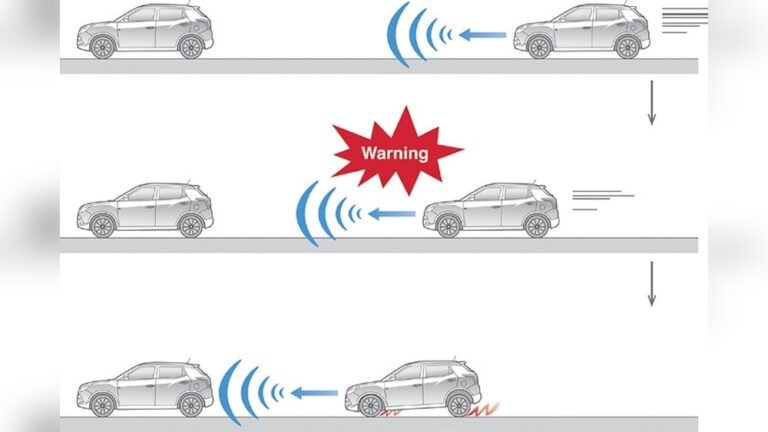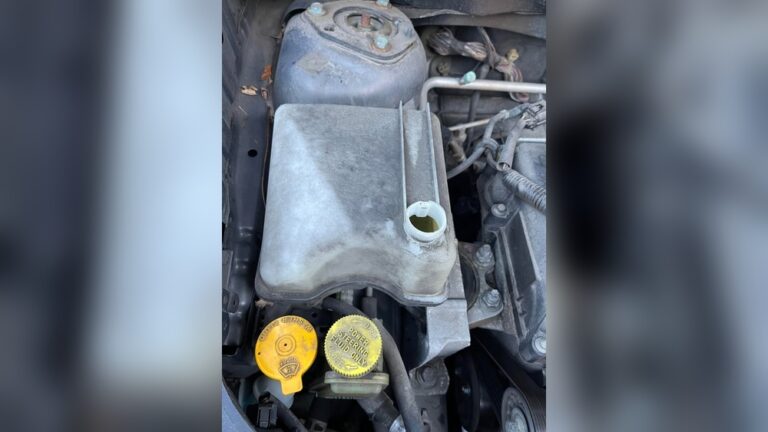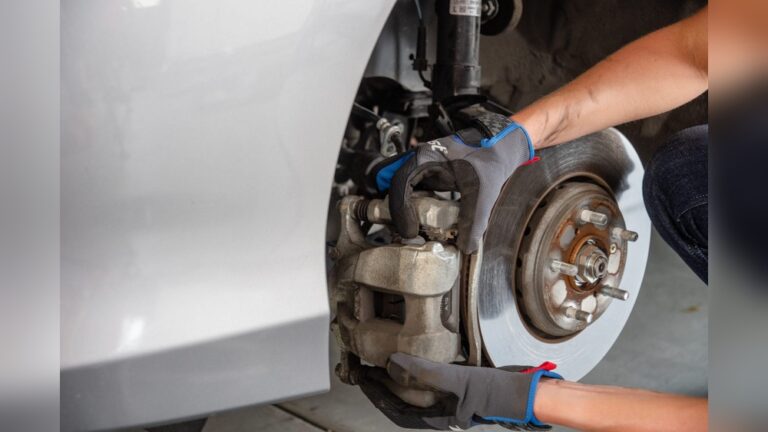Have you ever wondered how long it really takes to replace your car brakes? If your brakes are making noises or not feeling as responsive, you might be planning a visit to the mechanic soon.
Knowing how much time this job takes can help you plan your day better and avoid unexpected delays. You’ll discover exactly what goes into brake replacement, how long you should expect to wait, and why getting it done right is so important for your safety.
Keep reading to learn what you need to know before you head to the garage.
Signs You Need Brake Replacement
Knowing the signs of brake problems keeps you safe on the road. Brakes wear down over time. Watching for warning signs helps you act early. This stops bigger issues and costly repairs. Recognize these common signals to know when to replace brakes.
Squeaking And Grinding Noises
Squeaking noises often mean brake pads are thin. Grinding sounds warn that pads are gone. Metal parts may rub the brake rotor. This can damage your brakes more. Listen carefully to any unusual noises while driving.
Reduced Braking Performance
Your car should stop quickly and smoothly. If brakes feel weak or slow, it is a problem. Pressing the pedal may need more force. This means brake pads or fluid may be failing. Check brakes if you notice less stopping power.
Vibrations When Braking
Feel shaking in the brake pedal or steering wheel? Vibrations suggest warped rotors or worn parts. This affects braking control and safety. Don’t ignore any shaking sensations when braking hard.
Brake Warning Lights
Dashboard brake lights alert you to possible issues. Lights may signal low brake fluid or worn pads. Never drive long with a brake warning light on. Have your brakes inspected immediately.

Credit: currently.att.yahoo.com
Factors Influencing Replacement Time
Replacing car brakes takes different amounts of time. Several factors affect how long the job will take. Knowing these helps set the right expectations before visiting a mechanic.
Type Of Vehicle And Brake System
Different cars have different brake systems. Some have simple disc brakes, while others use complex drum brakes or advanced ABS systems. Larger vehicles like trucks often have bigger, harder-to-reach brakes. This makes the replacement take longer than on small cars.
Condition Of Brake Components
The state of brake parts matters. If brake pads and rotors are only lightly worn, replacement is quicker. Rusty or damaged parts need extra work to remove. Sometimes, stuck bolts slow down the process. More damage means more time spent fixing or replacing parts.
Experience Of The Mechanic
Skilled mechanics work faster and more efficiently. They know how to handle tricky brake systems and avoid mistakes. Less experienced mechanics take longer to complete the job. Expertise helps reduce the time spent on brake replacement.
Tools And Equipment Used
Modern tools speed up brake replacement. Power tools and special brake service equipment make removal easier. Without the right tools, the job takes more time. Well-equipped shops finish brake jobs faster and with less hassle.
Typical Timeframe For Brake Replacement
Brake replacement time varies based on the job’s complexity. Simple tasks take less time. Complex repairs need more care and parts. Knowing typical timeframes helps you plan better for repairs.
Replacing Brake Pads Only
Changing just the brake pads usually takes 30 to 45 minutes. Mechanics remove the wheel, old pads, and install new ones. A quick job if no other parts need fixing.
Replacing Brake Pads And Rotors
Replacing both pads and rotors often takes 1 to 2 hours. Rotors require extra steps like removing and cleaning. The process is a bit longer due to this work.
Replacing Brake Calipers
Brake caliper replacement can take 1.5 to 3 hours. Calipers control brake pressure and need careful handling. The job includes removing old calipers and installing new ones.
Complete Brake System Overhaul
A full brake overhaul can last 3 to 5 hours. This includes pads, rotors, calipers, and sometimes brake lines. It needs thorough inspection and precise work for safety.

Credit: www.reddit.com
Diy Vs Professional Brake Replacement
Replacing car brakes is a task many car owners consider doing themselves. Choosing between DIY and professional brake replacement depends on several factors. Time, skill level, safety, and warranty all play a role. Understanding these can help you decide the best option for your needs.
Time Considerations For Diy
DIY brake replacement takes more time than professional work. Beginners may spend a few hours learning and doing the job. Removing old brakes, cleaning parts, and installing new ones need careful steps. Mistakes can cause delays or damage. Having the right tools is essential. Without experience, expect the process to be slow.
Benefits Of Professional Service
Professionals replace brakes quickly and efficiently. They have the right tools and knowledge to finish the job in about an hour. Brake experts check the whole braking system for hidden issues. Their work ensures brakes perform well and last longer. Using a professional service saves time and effort.
Safety And Warranty Implications
Brake systems affect your car’s safety. Incorrect installation can lead to accidents. Professionals follow strict safety standards and test brakes after replacement. Many brake parts come with warranties only if installed by a certified mechanic. DIY work may void these warranties. Choosing professionals helps protect your safety and investment.
Tips To Speed Up Brake Replacement
Replacing car brakes can take time. Some steps help speed up the process. These tips save effort and avoid delays. Follow them for a smoother brake replacement experience.
Preparing The Vehicle
Park the car on a flat surface. Engage the parking brake to keep it still. Remove any items blocking wheel access. Clean the wheel area to see parts clearly. This reduces extra work during the repair.
Having The Right Tools Ready
Gather all necessary tools before starting. Common tools include a jack, lug wrench, and screwdrivers. Have new brake pads and parts ready. Proper tools avoid interruptions and wasted time. Check tool condition to prevent breakage.
Choosing The Right Service Center
Select a service center known for quick, quality work. Check reviews for customer satisfaction. Confirm they have all needed parts in stock. A skilled mechanic finishes brake replacement faster. Good service centers value your time and safety.
After Replacement Care
After replacing your car brakes, proper care is important for safety and brake life. New brakes need time and attention to work their best. Simple steps can help you avoid problems and keep your brakes in good shape.
Breaking In New Brakes
New brakes need to be broken in carefully. Drive slowly and avoid hard stops for the first 200 miles. This helps the brake pads and rotors fit together well. It also prevents uneven wear and noise. Gentle braking makes your new brakes last longer.
Monitoring Brake Performance
Watch how your brakes feel after replacement. Notice any strange sounds, vibrations, or changes in stopping power. These signs can show if something is wrong. Early detection helps fix problems before they get worse. Check brake fluid levels regularly too.
Scheduling Future Inspections
Regular brake checks keep your car safe. Schedule inspections every 6 months or 6,000 miles. A mechanic can spot wear and tear early. Timely checks save money and avoid brake failure. Keep a record of all brake services for reference.

Credit: www.sundevilauto.com
Frequently Asked Questions
How Long Does A Typical Brake Replacement Take?
A typical brake replacement takes about 1 to 2 hours. This includes removing old brake pads, inspecting components, and installing new ones. Time varies by vehicle type and brake system complexity.
Can I Drive Immediately After Brake Replacement?
Yes, you can drive immediately after brake replacement. However, it’s best to avoid hard braking for the first 24 hours. This allows the new brake pads to properly seat and ensures optimal performance.
What Factors Affect Brake Replacement Time?
Factors affecting brake replacement time include vehicle model, brake type, and mechanic experience. Some cars have complex systems requiring more time. Also, inspecting and repairing related parts can extend the duration.
Is It Necessary To Replace All Brakes At Once?
No, it’s not always necessary to replace all brakes at once. Often, only the worn brake pads or rotors on one axle are replaced. However, balancing brake wear improves safety and performance.
Conclusion
Replacing car brakes usually takes about one to two hours. The time depends on your car type and brake condition. Skilled mechanics work quickly but carefully. Regular brake checks help spot problems early. Staying on top of brake care keeps you safe.
Don’t wait for brakes to wear out completely. Knowing the time needed helps plan your visit. Brake replacement is a small task that protects your whole drive. Safe driving starts with good brakes.



